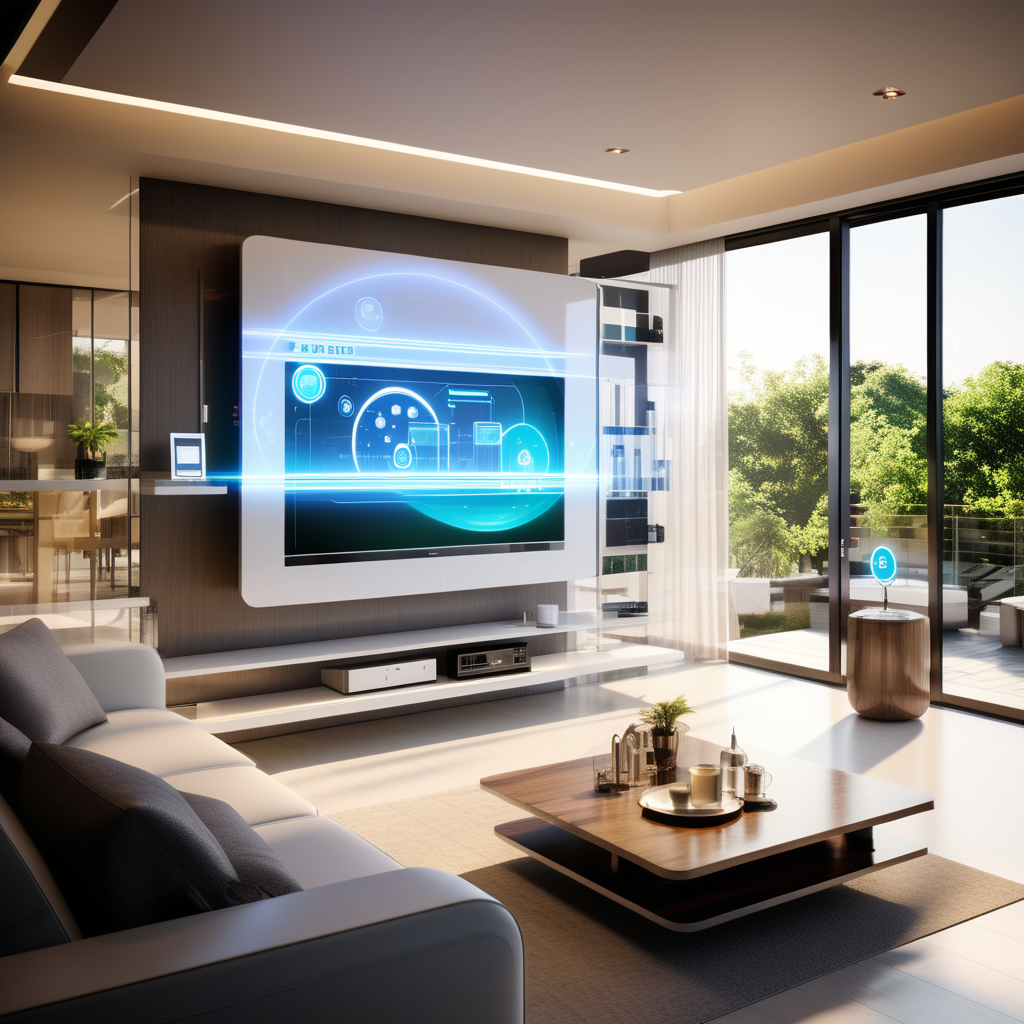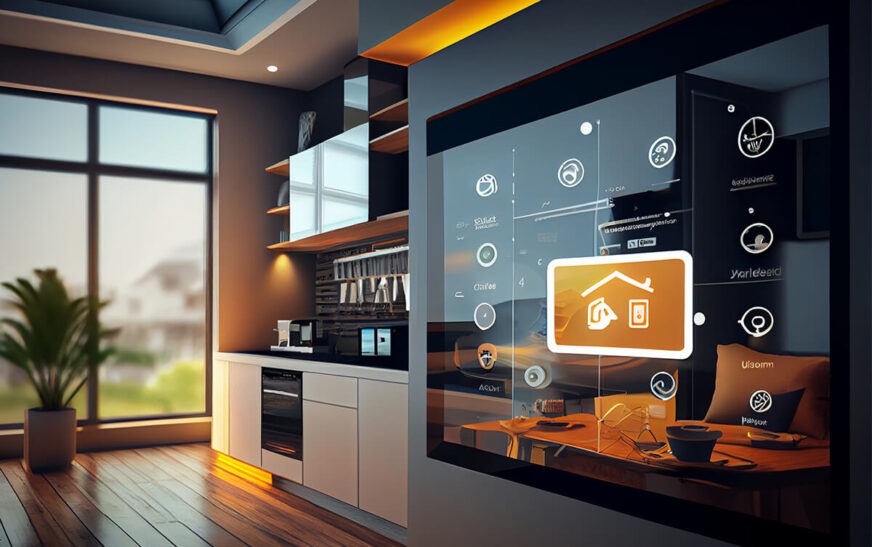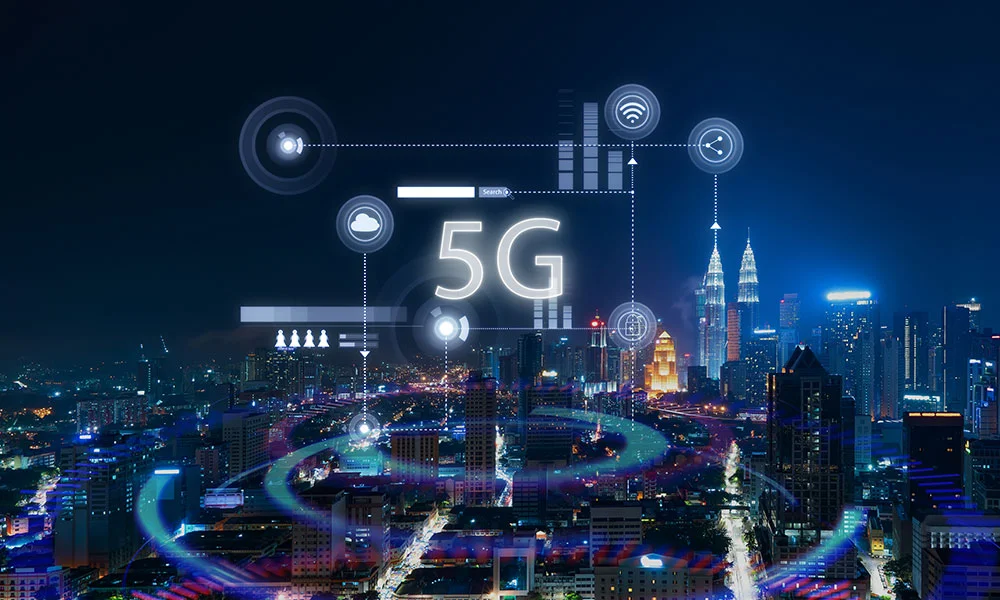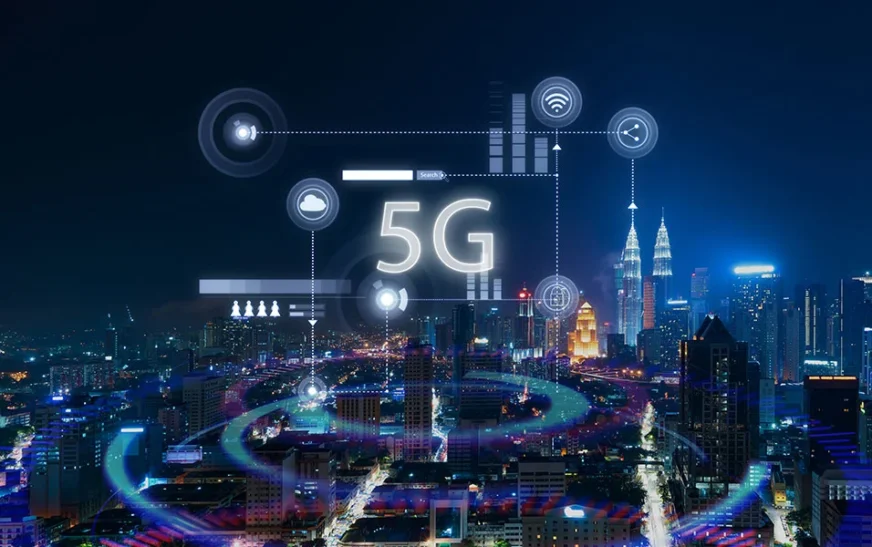Welcome to the future of living, where the term “home” takes on a whole new meaning. Imagine stepping into your house and having it respond intuitively to your needs—lights adjust to your mood, appliances work seamlessly with your schedule, and security measures are always at play without you lifting a finger. Smart homes are not just a trend; they represent a shift in how we interact with our spaces. As technology evolves, so does our way of life. Connected living is no longer reserved for tech enthusiasts; it’s becoming essential for modern lifestyles.
In this blog post, we’ll explore what smart homes entail and how they’re changing the game for homeowners everywhere. Get ready to discover the many benefits these connected devices bring to everyday life while also looking ahead at what innovations lie around the corner!

What is a Smart Home and How Does it Work?
A smart home is a living space equipped with devices that can communicate and control various functions within the household. These systems utilize internet connectivity to streamline daily tasks, making life more convenient.
At its core, a smart home operates through a central hub or platform. This serves as the brain of your connected environment, coordinating commands from diverse devices like thermostats, lights, and security cameras. Each device connects wirelessly—often via Wi-Fi or Bluetooth—allowing homeowners to manage them remotely through smartphones or voice-activated assistants.
Sensors play a crucial role in this setup, gathering real-time data on temperature, motion, and light levels. By analyzing this information, smart homes adjust settings automatically for optimal comfort and efficiency. The combination of automation and communication transforms traditional living spaces into dynamic environments tailored to individual preferences.
Advantages of a Smart Home for Modern Lifestyles
Smart homes offer unmatched convenience for modern lifestyles. Imagine controlling your lighting, heating, and security all from a single app on your phone. It streamlines daily tasks, making life easier.
Enhanced energy efficiency is another significant perk. Smart thermostats learn your habits and adjust temperatures accordingly, reducing unnecessary energy use while saving you money on bills.
Home automation also adds an element of safety. With smart cameras and alarms integrated into the system, you can monitor your home at any time from anywhere. This peace of mind is invaluable in today’s fast-paced world.
Moreover, smart homes cater to personalization like never before. You can create automated routines that align with your unique schedule and preferences, ensuring everything runs smoothly throughout the day without constant oversight.
In addition to these benefits, smart technology adds value to properties. Modern buyers often seek out connected features when looking for their dream home.
Connected Devices and Technology in Smart Homes
Connected devices form the backbone of modern smart homes. They seamlessly integrate into daily life, creating an ecosystem that enhances convenience and efficiency.
Imagine controlling your lights, thermostat, and security system from a single app on your smartphone. Smart bulbs adjust their brightness with a simple tap, while smart thermostats learn your schedule to optimize energy usage.
Voice assistants like Amazon Alexa or Google Assistant bring another layer of interaction. With just a voice command, you can play music or check the news without lifting a finger.
Smart appliances are revolutionizing kitchens too. Refrigerators can alert you when groceries are running low or suggest recipes based on available ingredients.
These innovations not only make living more convenient but also foster an interconnected lifestyle where everything works in harmony—creating spaces that adapt to individual needs effortlessly.
The Impact of Smart Homes on Energy Efficiency
Smart homes significantly enhance energy efficiency, transforming the way we consume power. With interconnected systems, homeowners can monitor and control their energy usage in real-time.
Smart thermostats adjust heating and cooling based on your daily routines. This means no more wasted energy while you’re out of the house. Instead, they optimize comfort when you are home.
Lighting plays a crucial role too. Smart bulbs allow scheduling and remote operation, ensuring lights aren’t left on unnecessarily. You can even set them to turn off automatically during daylight hours.
Moreover, smart appliances use less energy by operating during off-peak hours or when demand is lower. These innovations contribute not only to reduced utility bills but also to a smaller carbon footprint.
The integration of renewable energy sources further enhances this efficiency model. Homes equipped with solar panels can manage their energy production and consumption seamlessly through smart technology.

Security and Privacy Concerns for Smart Home Owners
As smart homes grow in popularity, security and privacy concerns loom larger than ever. Connected devices can collect vast amounts of personal data, making homeowners vulnerable to cyber threats.
Hackers often exploit weak passwords or outdated firmware. This can lead to unauthorized access to your home network and devices. The thought of someone controlling your thermostat or surveillance cameras is unsettling for many.
Privacy is another major issue. With voice-activated assistants always listening, there’s a risk that conversations could be recorded without consent. Users must navigate the balance between convenience and privacy.
To mitigate these risks, it’s essential to implement strong security practices. Regular updates and robust password management are critical steps toward safeguarding your digital life.
Investing in reputable brands with strong encryption will provide an extra layer of protection against potential breaches. Awareness is key; staying informed about cybersecurity trends helps you keep ahead of emerging threats.
Choosing the Right Smart Home Products for Your Lifestyle
Selecting the right smart home products can feel overwhelming. The market is flooded with options, and it’s essential to focus on what fits your lifestyle.
Start by assessing your daily routines. Do you need enhanced security? Consider smart cameras or doorbells that offer real-time alerts. If energy efficiency is a priority, look into smart thermostats that learn your preferences over time.
Compatibility matters too. Ensure devices can connect seamlessly with each other and any existing systems in your home. This will create a cohesive experience rather than a disjointed setup.
Budget plays a crucial role as well. While high-end gadgets may be tempting, many affordable options deliver excellent functionality without breaking the bank.
Think about scalability. Choose solutions that allow for future expansion as technology advances or as your needs change over time.
The Future of Smart Homes: Predictions and Possibilities
The future of smart homes promises exciting advancements. Imagine a home that learns your routines and adjusts accordingly. It’s not just about convenience; it’s about creating a personalized living experience.
Voice-activated assistants will become even more intuitive, responding to emotions as well as commands. Picture being greeted by calming lights and music when you arrive home after a long day.
Integration with AI-driven technology will lead to proactive maintenance alerts. Your appliances could communicate their needs before they fail, ensuring seamless functionality.
Sustainability will also take center stage. Expect smarter energy management systems that optimize usage based on real-time data, reducing waste effectively.
The design of smart devices is shifting towards aesthetics without sacrificing functionality. Homes will blend technology with style effortlessly, catering to modern lifestyles while enhancing comfort and efficiency in daily life.

Conclusion
The evolution of smart homes marks a significant shift in how we interact with our living spaces. As technology advances, the concept of connected living becomes increasingly accessible and appealing to modern lifestyles. With numerous advantages, from enhanced convenience to improved energy efficiency, adopting smart home technologies can transform daily routines.
While there are legitimate concerns regarding security and privacy that homeowners must consider, the benefits often outweigh these risks when proper precautions are taken. Choosing the right products tailored to individual preferences is key for maximizing the potential of a smart home.
Looking ahead, innovations will continue to reshape our understanding of what it means to live in a connected environment. The future promises even more seamless integration between devices and systems within our homes, catering specifically to our evolving needs as individuals and families.
As this technology continues to develop at an unprecedented pace, embracing the possibilities will allow us all to enhance not just our homes but also our lives within them.






